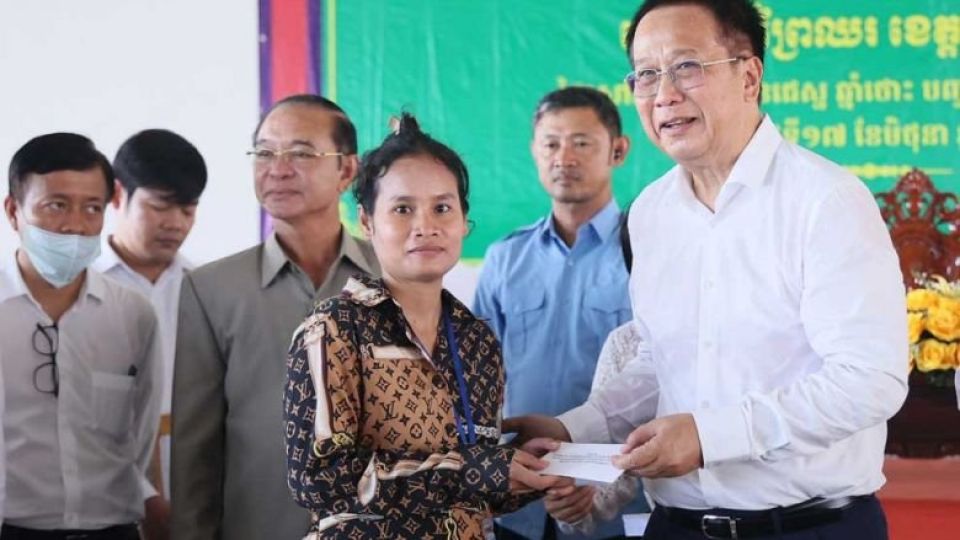June 20, 2023
PHNOM PENH – Cambodia is continuing to negotiate trade partnership agreements with several countries in order to access new foreign markets and boost the Kingdom’s self-reliance, according to Minister of Commerce Pan Sorasak.
While meeting with factory workers in Kampong Cham province’s Prey Chhor district on June 17, Sorasak recalled some of the crises that had affected the Kingdom’s economic, trading and political balance, including climate change, geopolitical competition, trade war and the Russian invasion of Ukraine.
He shared the Kingdom’s pride in several recent trade agreements, such as the Regional Comprehensive Economic Partnership (RCEP), the Cambodia-China Free Trade Agreement (CCFTA), Cambodia-Korea Free Trade Agreement (CKFTA) and the Cambodia-United Arab Emirates Comprehensive Economic Partnership Agreement (CAM-UAE CEPA). He explained that further trade agreements are currently under negotiation and expected to be completed soon.
“We are negotiating to open additional markets as part of the government’s vision to seize new market opportunities abroad and help make Cambodia self-reliant. This will ensure the sustainability of a robust economy, expanded product markets, higher living standards and more employment opportunities,” he said.
With regards to the EU’s “Everything But Arms” (EBA) preferential trade scheme, Ky Sereyvath, an economics researcher at the Royal Academy of Cambodia, said on June 18 that Cambodia must prepare itself as the same economic growth that is lifting the Kingdom out of poverty means the EBA will soon be withdrawn.
“When Cambodia is lifted out of poverty, all preferential tax systems will come to an end. Currently, we enjoy a Most-Favoured-Nation [MFN] treatment, so we are subject to reduced tariffs in many markets. We must examine ways to reduce production costs so we can remain competitive,” he said.
He explained that when these systems are withdrawn, Cambodian goods may become up to five per cent more expensive. Therefore, the Kingdom must strengthen itself by bringing costs down and increasing its trade volume.
While addressing factory workers in Kampong Speu province’s Kong Pisei district on June 4, Prime Minister Hun Sen reiterated that the EU’s partial suspension of the EBA did not significantly hinder the country’s exports to the bloc.
“By 2027, our country will no longer be among the least developed countries [LDC]. In my view, this implies an inevitable shift towards taxation for Cambodian goods exported to European markets,” he said.
However, the premier downplayed the effect of the EBA withdrawal. He disclosed that Cambodia had initiated discussions with China, Japan, South Korea, and the Asian Development Bank (ADB) to continue providing the Kingdom with preferential loans once it exits the LDCs.


